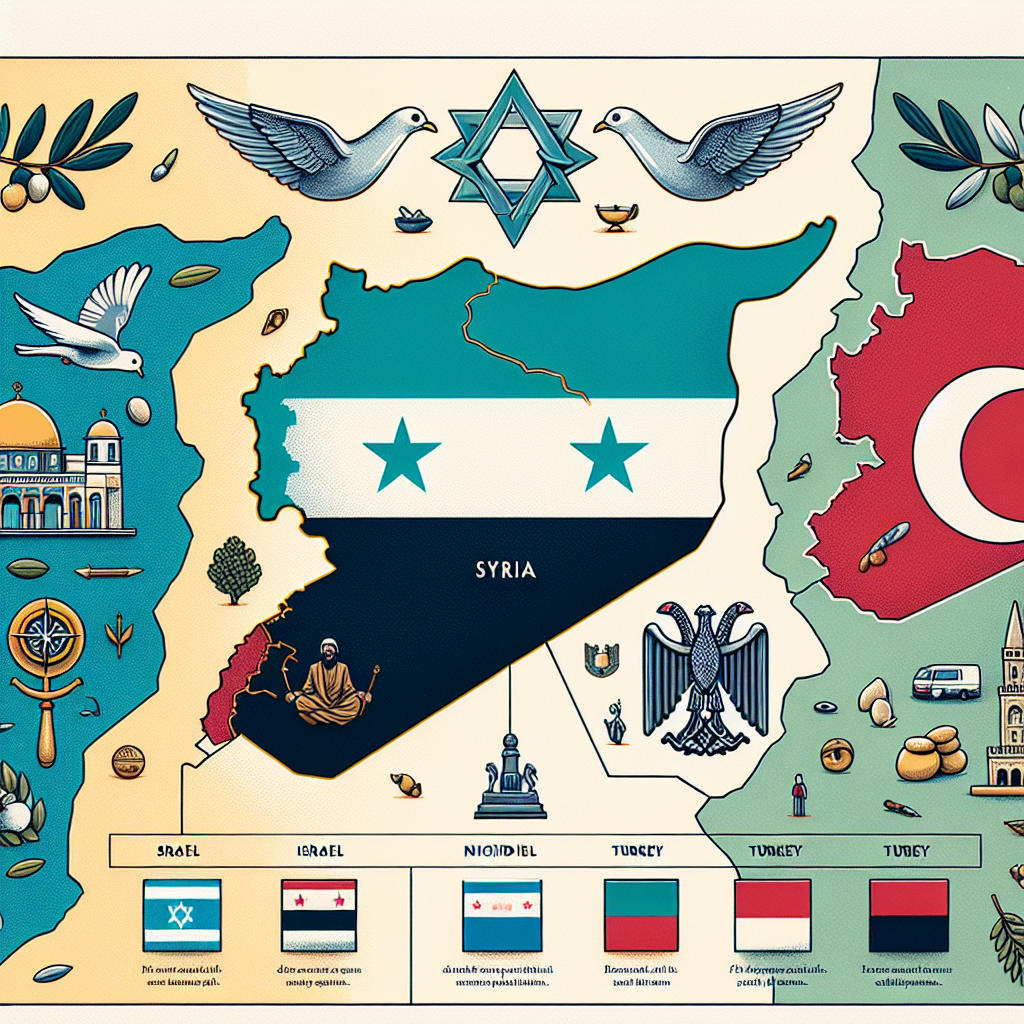The Significance of Syria for Israel and Turkiye
The Significance of Syria for Israel and Turkiye
Geopolitical Importance
Syria’s strategic location in the Middle East makes it a focal point for regional powers like Israel and Turkiye. Both countries have vested interests in the stability and political landscape of Syria, influencing their foreign policies and regional strategies.
Israel’s Perspective
For Israel, Syria represents both a security challenge and an opportunity to counter regional adversaries. Key concerns include:
- Security Threats: The presence of Iranian forces and Hezbollah in Syria poses a direct threat to Israel’s northern borders.
- Strategic Alliances: Israel seeks to strengthen ties with other regional players to counterbalance Iranian influence.
- Peace Prospects: Stability in Syria could pave the way for broader peace initiatives in the region.
Turkiye’s Interests
Turkiye’s involvement in Syria is driven by a mix of security, political, and humanitarian concerns:
- Border Security: Turkiye aims to prevent the establishment of a Kurdish autonomous region along its border, which it views as a threat to its territorial integrity.
- Refugee Crisis: Hosting millions of Syrian refugees, Turkiye is keen on creating safe zones within Syria to facilitate their return.
- Regional Influence: Turkiye seeks to expand its influence in Syria to bolster its standing as a key regional power.
Shared Challenges and Opportunities
Despite differing priorities, Israel and Turkiye face common challenges in Syria, such as the threat of terrorism and the need for political stability. Both countries could potentially collaborate on:
- Counterterrorism Efforts: Joint initiatives to combat extremist groups operating in Syria.
- Humanitarian Aid: Coordinated efforts to address the humanitarian crisis and support reconstruction efforts.
- Diplomatic Engagement: Engaging in diplomatic dialogues to foster a stable and peaceful Syria.
Conclusion
Syria’s significance for Israel and Turkiye is underscored by its strategic location and the complex web of security, political, and humanitarian issues it presents. While both countries have distinct priorities, there are opportunities for collaboration that could contribute to regional stability and peace. Understanding these dynamics is crucial for comprehending the broader geopolitical landscape of the Middle East.






































